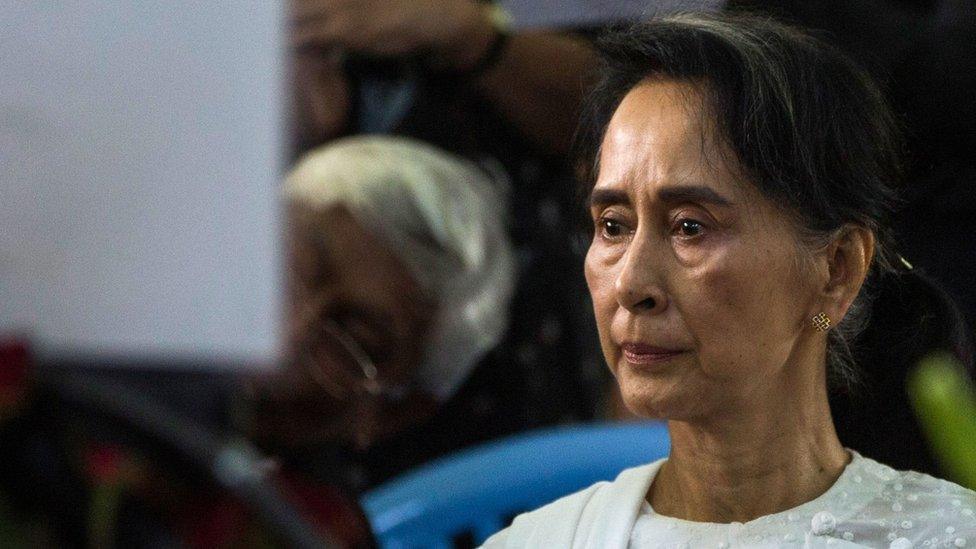Pope in Myanmar: All or nothing for the Rohingya
- Published
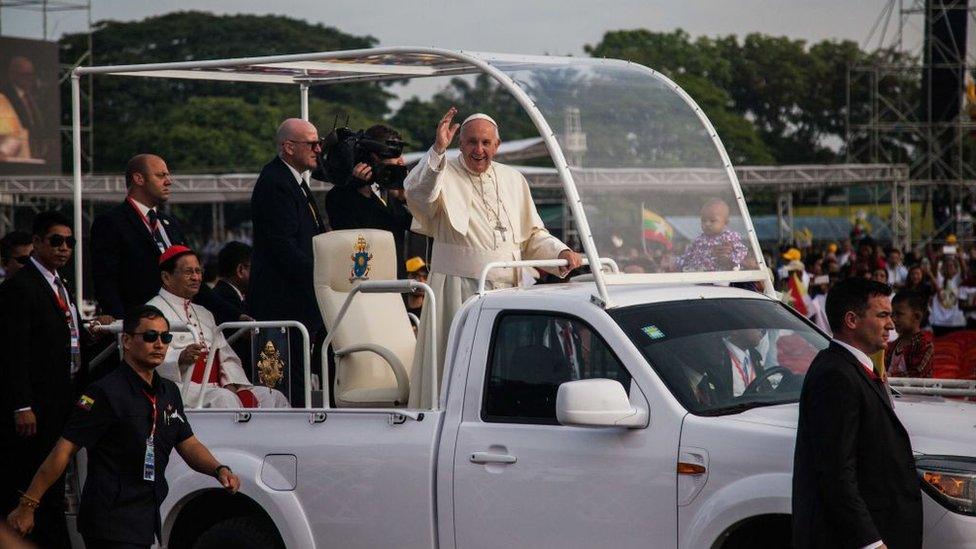
What's the big deal with a name?
In the case of the Rohingya, members of Myanmar's Muslim minority, it is all or it is nothing. That's why there was such anticipation surrounding the visit of Pope Francis this week.
Three months ago, as hundreds of thousands felt compelled to leave their homes and head toward the border with Bangladesh, the Pope denounced "the persecution of our Rohingya brothers" under a military crackdown described by the UN as "textbook ethnic cleansing".
Buddhist mobs have also been accused of taking part in the campaign of violence, after Rohingya militants launched deadly attacks on a number of police stations.
The Pope's comments, delivered in Rome, were consistent with previous statements on other atrocities.
He risked inflaming Turkish President Recep Erdogan when he described the mass murder of Armenians during World War One as "a genocide".
He has openly apologised for the silence of the Church during the 1994 genocide in Rwanda.
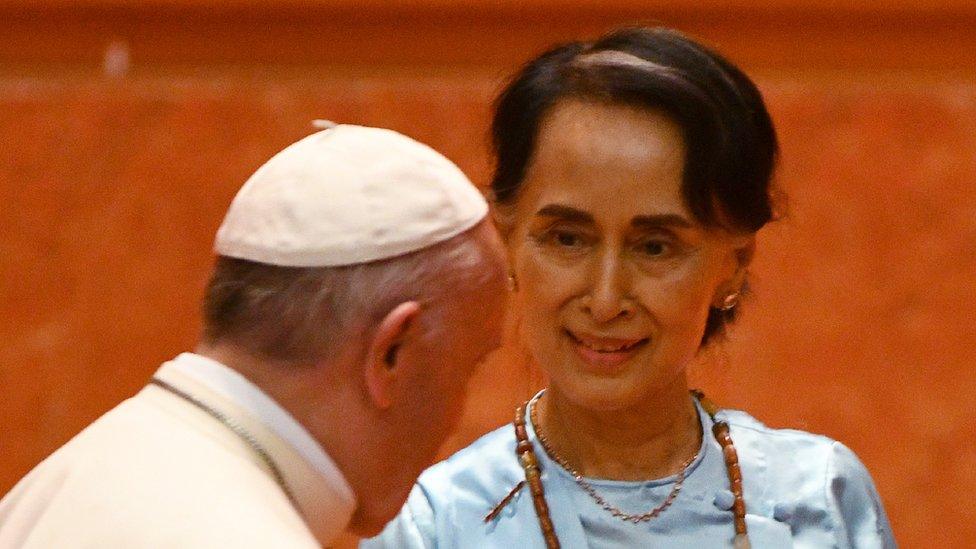
Aung San Suu Kyi has been widely criticised over the Rohingya's treatment
And for a Pope who has made advocacy for refugees and outreach to the Muslim world the two signature themes of his pontificate, it was not difficult to imagine him raising the sufferings of the Rohingya people, at a joint event with Myanmar's de facto leader, Aung San Suu Kyi, on Tuesday.
But he did not.
And the reason for why may be found in the fact that, to the government of Buddhist-majority Myanmar, also known as Burma, the term "Rohingya" is devoid of meaning.
Although Bengali-speaking Muslims have lived in Rakhine state for generations, they are not one of the nation's recognised ethnic groups, because the government regards them as illegal immigrants.
The Rohingya had enjoyed equal rights after Burma loosened itself from British rule in 1948.
Clerical concern
But a critical moment for this community arrived in 1982 when the military junta decided to pass a law that identified eight ethnicities that would be entitled to citizenship. The Rohingya were not among them.
Suddenly, people who believed they were stake-holding citizens of the country were cast into the category of rootless pariahs.
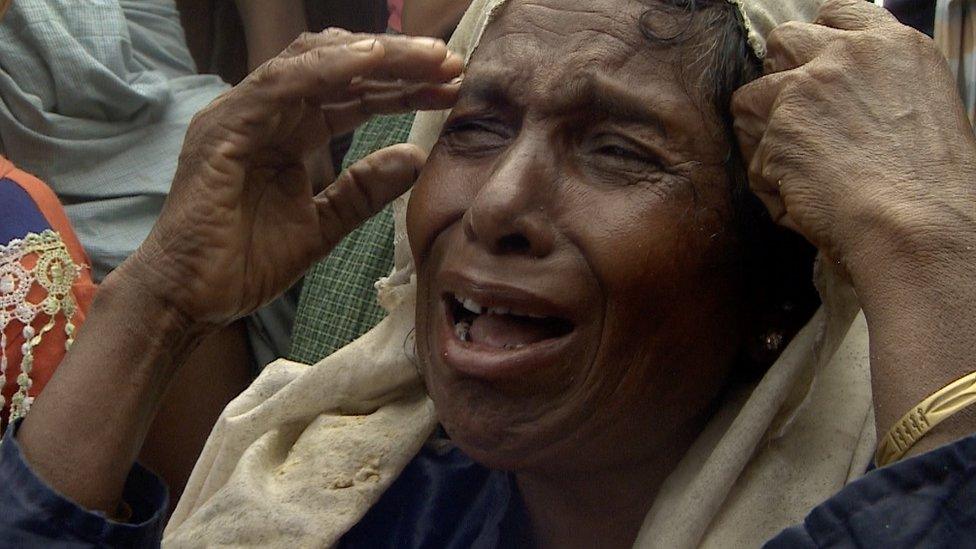
Tens of thousands of Rohingya have fled violence in Myanmar's Rakhine state
The result has been the steady erosion of rights and status, coupled with persecution.
It also explains why, in their briefing of Pope Francis, Church leaders in Myanmar advised him against using the "R" word.
The most senior cleric in Myanmar, Cardinal Charles Bo, warned that if Pope Francis used the word or embarked upon a detailed description of suffering in Rakhine state, he would not only aggravate the situation for the Muslim minority, but also put the Christian minority at risk.
In addition to the advice of fellow clergy, there was also an unexpected development on Monday, a few hours after the papal plane landed at Yangon (Rangoon) airport.
Military meeting
There were the traditional greetings from Church leaders and local dignitaries, alongside a contingent of children, all gathered at the airport to cheer the Pope's arrival.
As he was taken to the archbishop's residence, the travelling press corps was told that the Pope would not have any further scheduled activities for the remainder of the day.
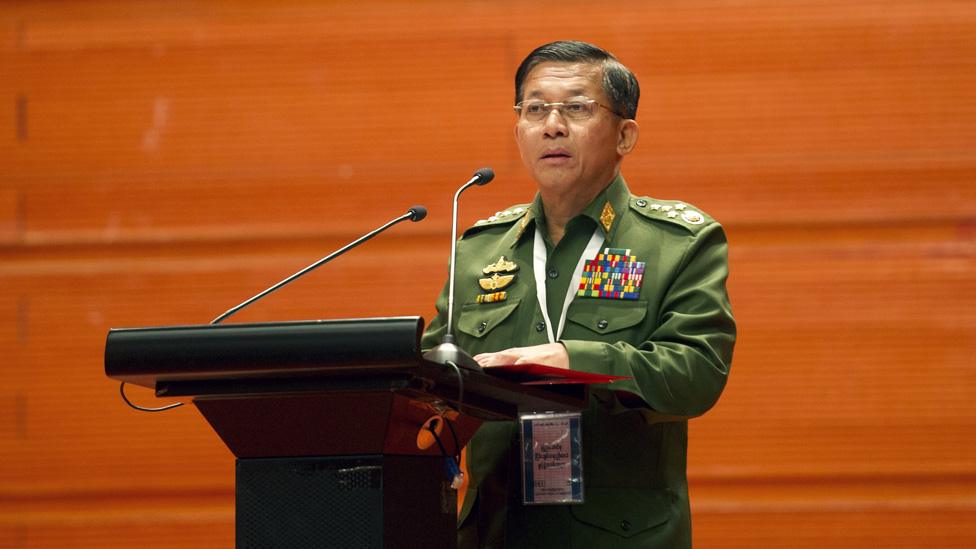
The army chief insists the Rohingya Muslims do not face religious discrimination
Then, during the afternoon, we learned that Pope Francis had gone to meet the commander of the Myanmar armed forces, Gen Min Aung Hlaing - a meeting that had been scheduled for Thursday. He would also meet four other senior military figures.
The meeting lasted about 20 minutes and concluded with an exchange of gifts, but there was no official readout of anything said at the gathering.
There was speculation that the army had wanted to meet the Pope before he engaged with Aung San Suu Kyi and other members of the civilian government.
On Tuesday morning, and without any notice, the head of the Myanmar army was quoted on an official website as saying there was no "ethnic discrimination" in his country.
Just as, to him, there are no Rohingya in his country.
- Published29 November 2017
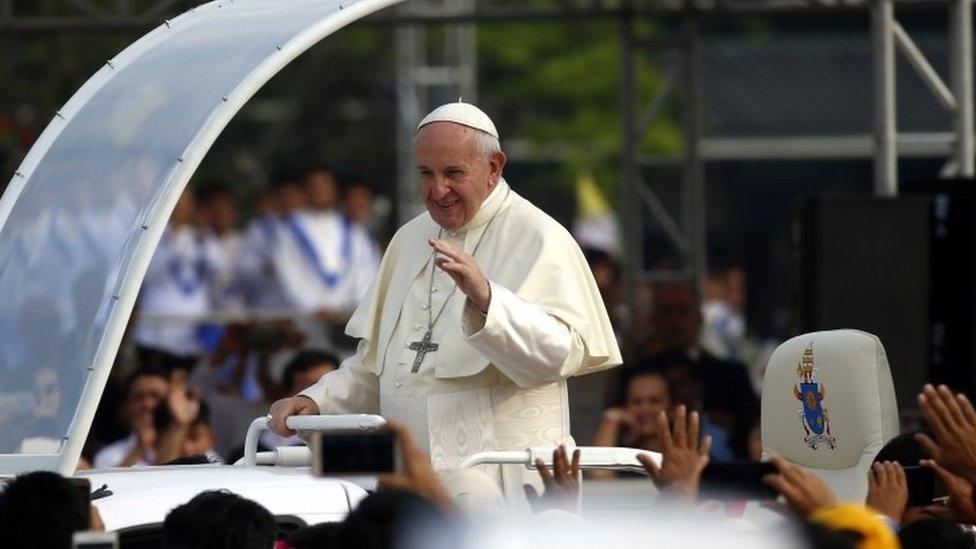
- Published28 November 2017
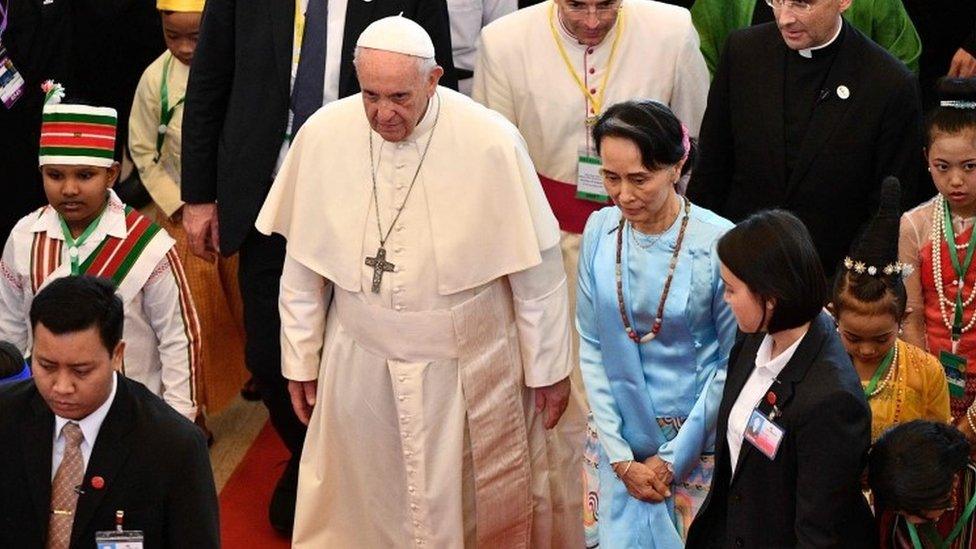
- Published28 November 2017
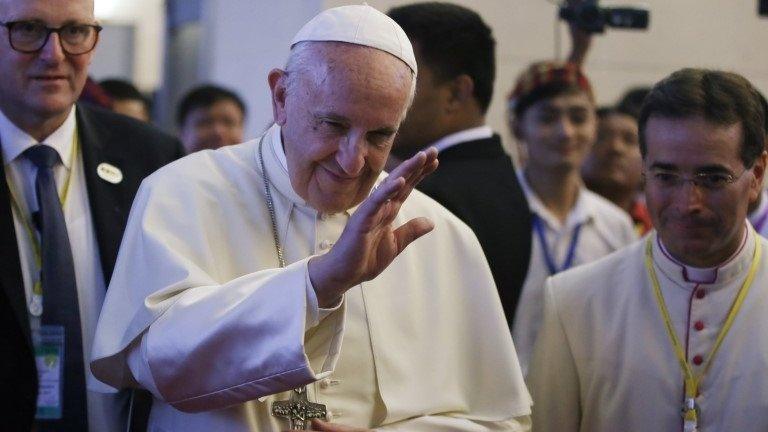
- Published27 November 2017
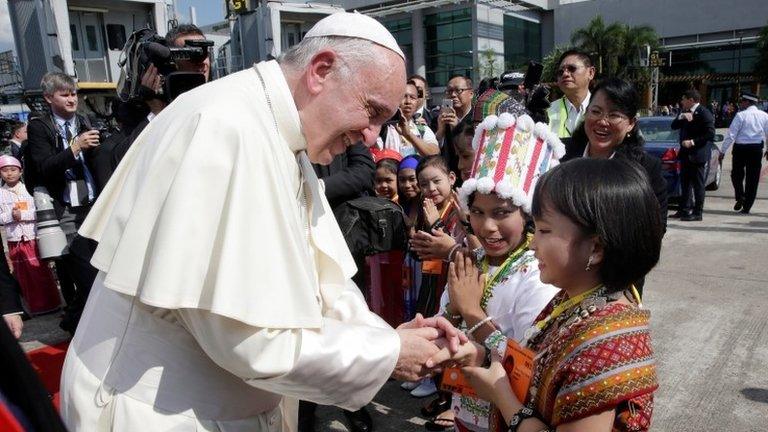
- Published26 May 2023
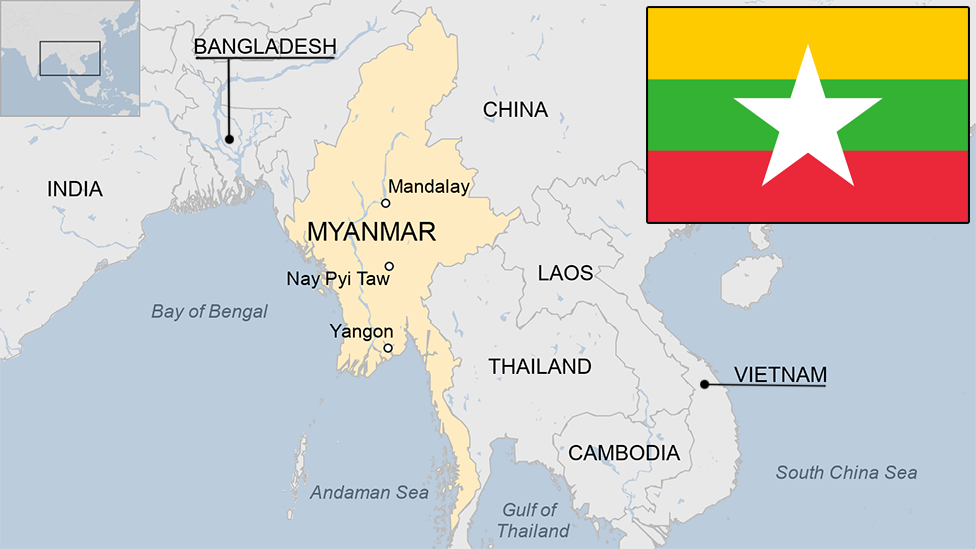
- Published8 September 2017
